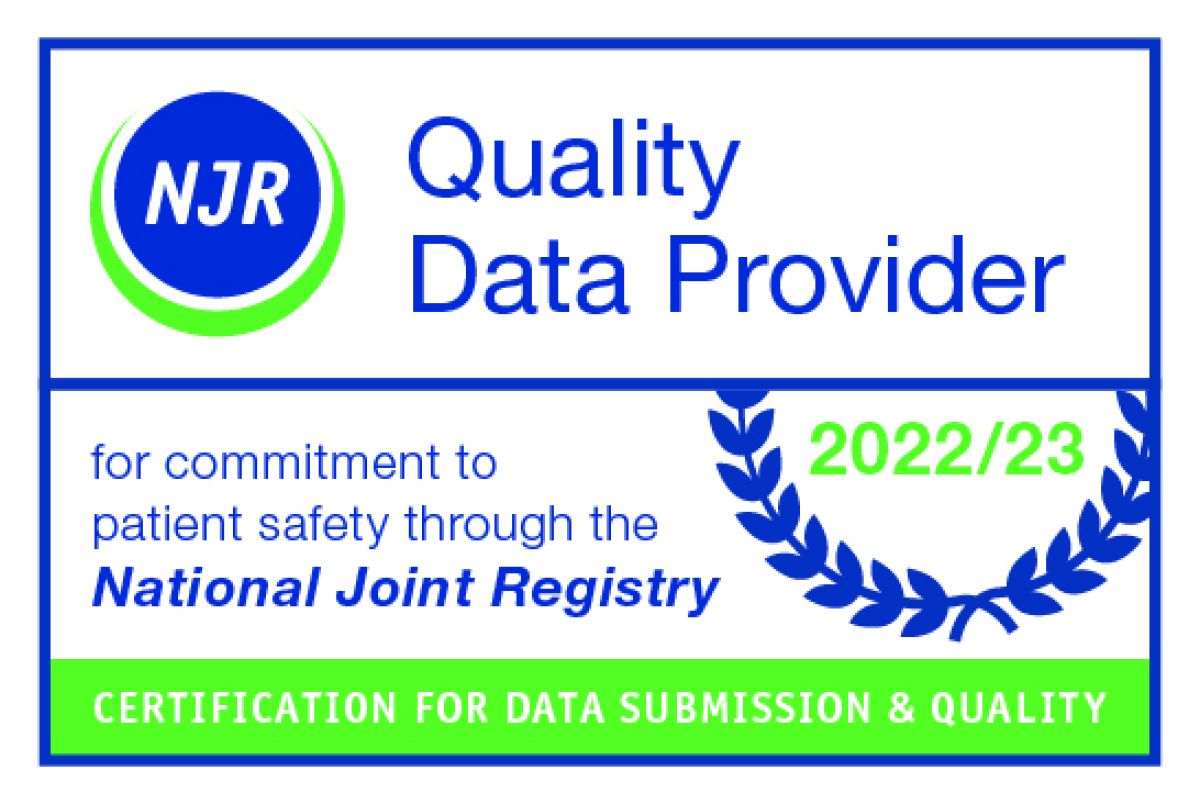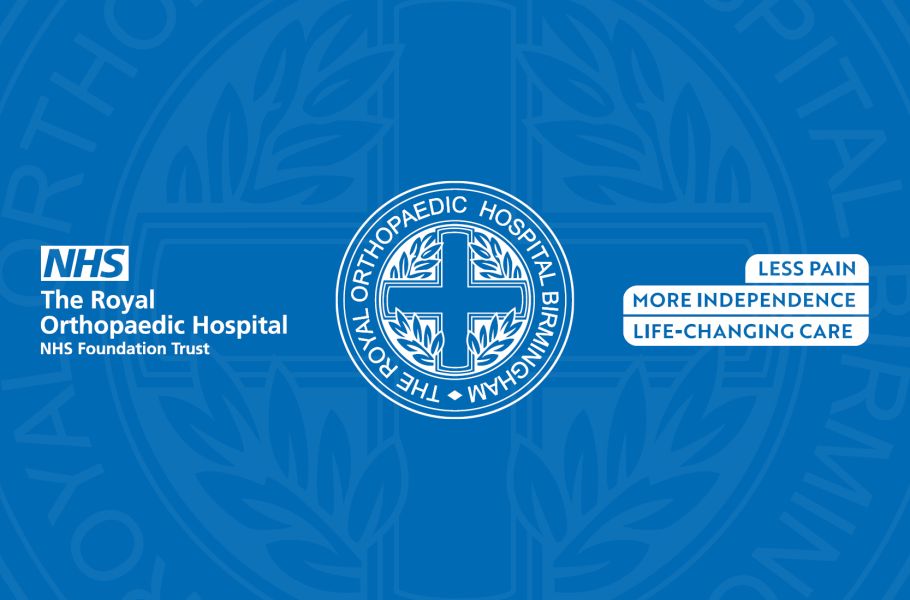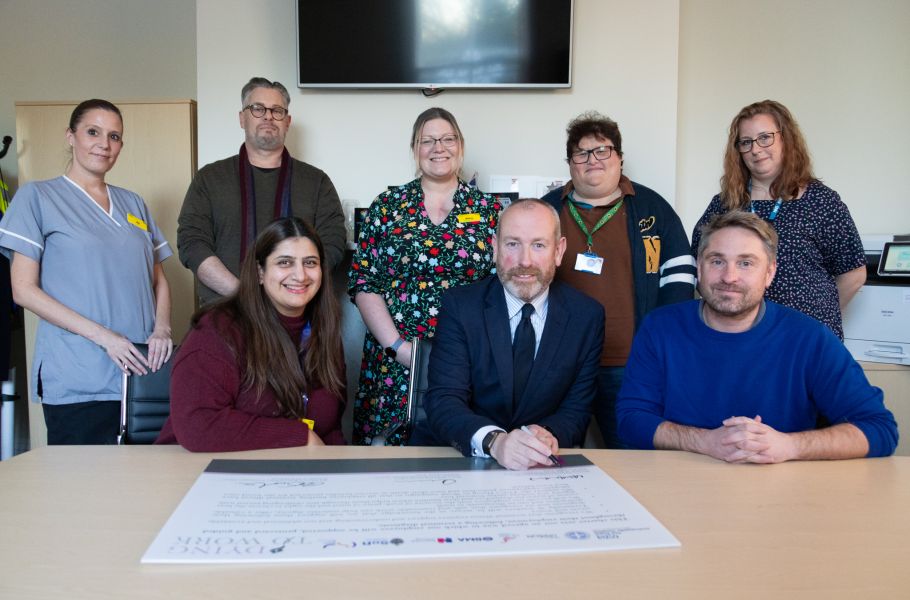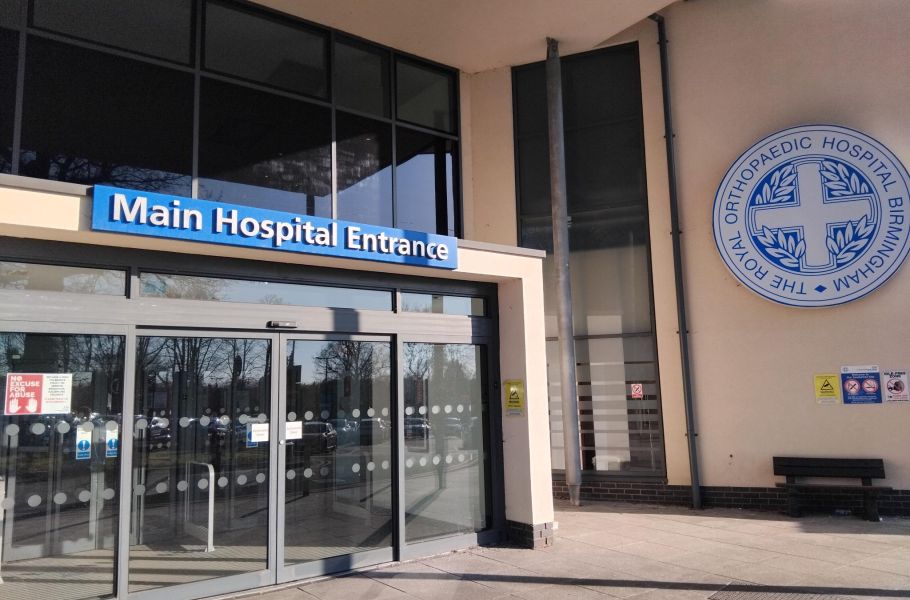Royal Orthopaedic Hospital awarded for commitment to patient safety by the National Joint Registry

The Royal Orthopaedic Hospital has been named as a National Joint Registry (NJR) Quality Data Provider after successfully completing a national programme of local data audits.
The NJR monitors the performance of hip, knee, ankle, elbow and shoulder joint replacement operations to improve clinical outcomes primarily for the benefit of patients, but also to support orthopaedic clinicians and industry manufacturers. The registry collects high quality orthopaedic data in order to provide evidence to support patient safety, standards in quality of care, and overall cost-effectiveness in joint replacement surgery. The ‘NJR Quality Data Provider’ certificate scheme was introduced to offer hospitals a blueprint for reaching high quality standards relating to patient safety and to reward those who have met registry targets.
Jo Williams, Chief Executive at The Royal Orthopaedic Hospital, said:
“Improving patient safety is of the utmost importance and something all staff take very seriously. We fully support the National Joint Registry’s work in facilitating improvement in clinical outcomes and governance for the benefit of joint replacement patients and we’re delighted to be awarded as an ‘NJR Quality Data Provider’ for the third year running.”
In order to achieve the award, hospitals are required to meet a series of six ambitious targets during the audit period 2021/22. One of the targets which hospitals are required to complete is compliance with the NJR’s mandatory national audit aimed at assessing data completeness and quality within the registry.
The NJR Data Quality Audit compares the number of joint replacement procedures submitted to the registry to the number carried out and recorded in the local hospital Patient Administration System. The audit ensures that the NJR is collecting and reporting upon the most complete, accurate data possible across all hospitals performing joint replacement operations, including The Royal Orthopaedic Hospital.
NJR targets also include having a high level of patients consenting for their details to be included in the registry and for hospitals to demonstrate timely responses to any alerts issued by the NJR in relation to potential patient safety concerns.
National Joint Registry Medical Director, Mr Tim Wilton, said:
“Congratulations to colleagues at the Royal Orthopaedic Hospital. The Quality Data Provider Award demonstrates the high standards being met towards ensuring compliance with the NJR and is often a reflection of strong departmental efforts to achieve such status.
As well as being a fundamental driver to inform improved quality of care for patients, registry data provides an important source of evidence for regulators, such as the Care Quality Commission, to inform their judgements about services.”
Full details about the NJR’s Quality Data Provider certificate scheme can be found online at: https://www.njrcentre.org.uk.









